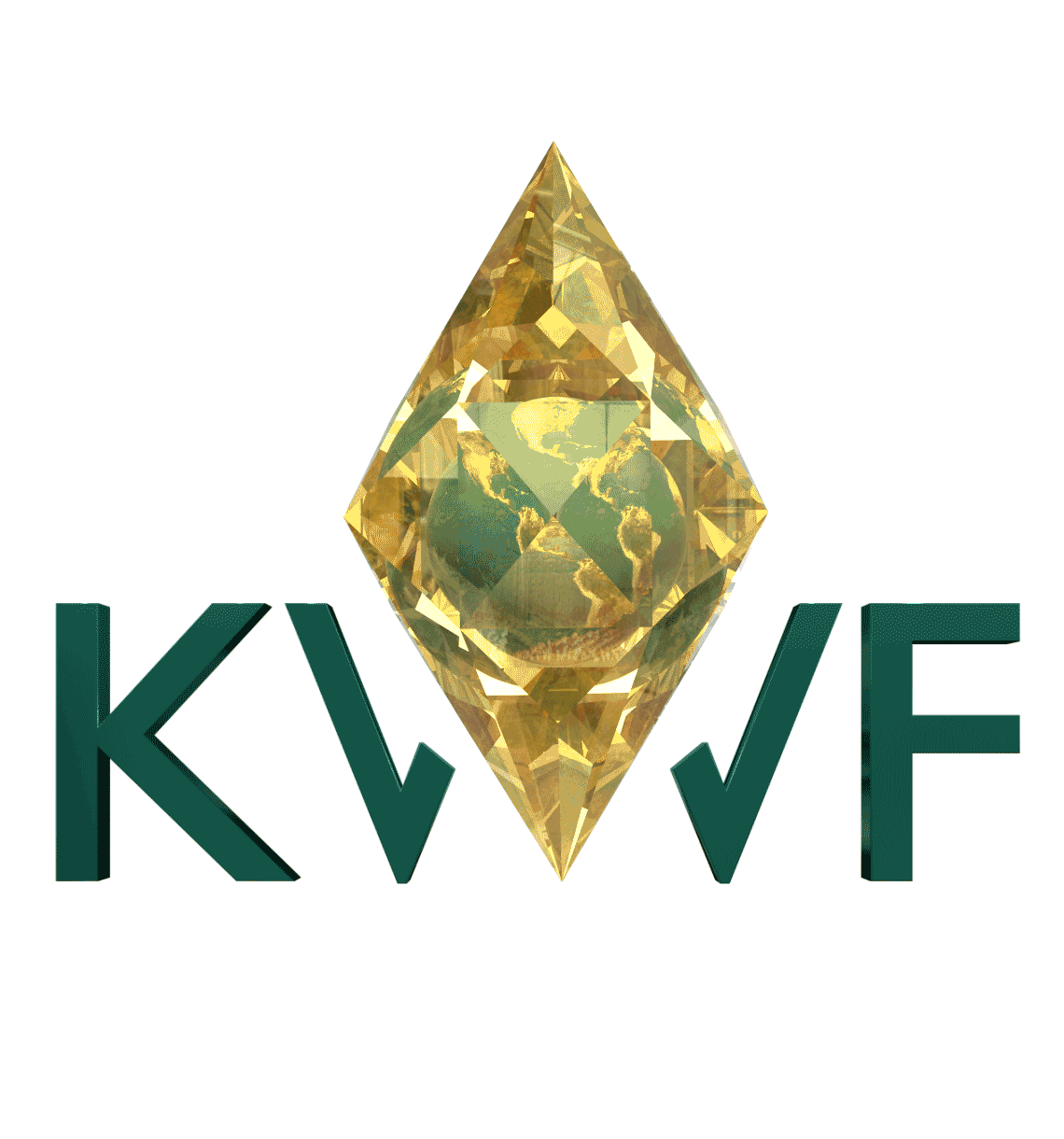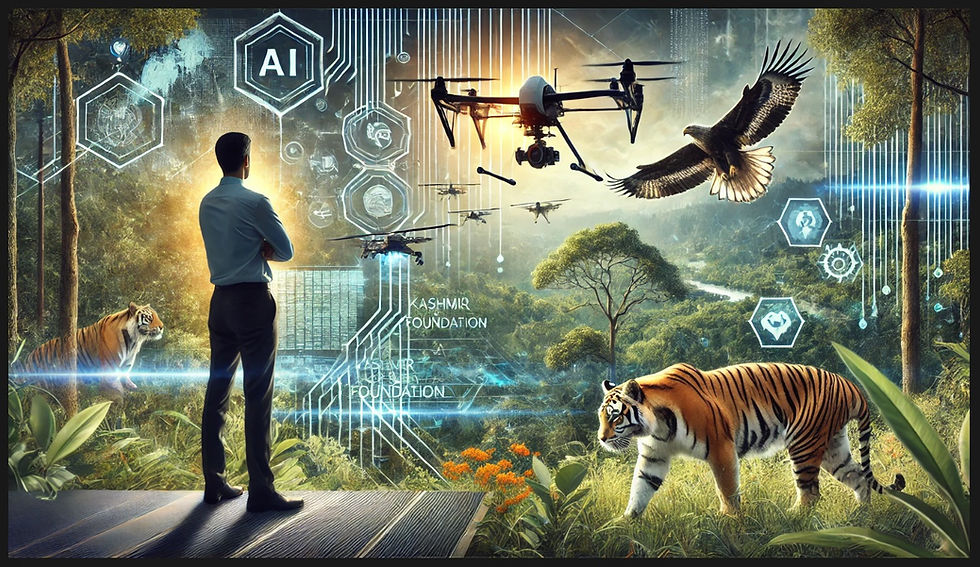Statements on Ranger Responsibilities and the Poaching Crisis in KNP
- Kashmir World Foundation

- Mar 19, 2015
- 4 min read
By Lisa Jorgensen, Lead Wildlife Researcher KwF

I recently had a conversation about game ranger turnover at Kruger National Park with member and Senior Warden of the Game Rangers Association of Africa (GRAA), James Slade. In our discussions, James shared 2 very informative documents in which I am now, with his permission, sharing with you.
The first deals with the ever-changing roles and responsibilities of game rangers. The second is an official statement from the GRAA regarding the rhino poaching crisis in Kruger National Park.
Please take the time to read over these documents, as they are critical in understanding the weight of responsibilities rangers take on and the danger in which they face keeping the park and its’ inhabitants safe. (Slade, 2014)
The changing role of a ranger and its effect on protected area management In Africa, the game ranger goes by many different titles: Game Ranger, Game Warden, Conservation Officer, Field Ranger and many more, yet all are essentially the wildlife managers and the field force, working at the "coal face" of conservation. The prime responsibility of the game ranger in Africa is to ensure the territorial integrity and safety of the protected area under his/her management. A game ranger’s tasks are multi-faceted and include; ensuring the day to day health and well-being of the wildlife, research and monitoring, game capture and introductions, population management, burning programs, infrastructure and equipment maintenance, public relations, environmental education, and, crucially, local community relations, liaison, and involvement. Added to these are the normal day to day financial controls, human resource planning, and administration, which must also be carried out. In many state-run organisations, the growing influence of politicians cannot be ignored. A ranger’s job is often a difficult, dangerous and thankless task, working under trying conditions, for which they receive very little remuneration and recognition and seemingly minuscule support both morally and financially. For their dedication, many have in the past, and no doubt will in the future, pay with their lives.
The upsurge of poaching across Africa fuelled by the illegal wildlife trade has led to the precarious situation where some of the responsibilities of a ranger do not necessarily receive the attention they deserve. This is not a reflection on the rangers themselves but of the enormous task, they now face to bring unprecedented poaching levels under control.
In many areas, Africa’s rangers are consumed by the day to day fight they have on their hands to ensure the protection of Africa’s rhinos and elephants. When one considers the broad spectrum of responsibilities that are necessary to ensure that biodiversity is maintained across the protected areas where rangers work, one must not lose sight of the price that conservation may be paying in other areas.
Poaching is not a new threat. Indeed the history of conservation in Africa is punctuated by many battles against poaching, some of which have been successful and some of which unfortunately have not. Conducting anti-poaching initiatives has always been a responsibility of a game ranger but not on the scale seen today.
This is largely due to poaching having moved from being largely subsistence-based bush meat poaching to the situation today whereby highly skilled and well trained armed militia operate as part of international syndicates who trade in illegal wildlife products. The vast amount of money generated through illegal wildlife trade has meant that rangers are up against more ruthless and proficient poachers than ever before.
Traffic, the wildlife trade monitoring network, estimates that illegal wildlife trade is worth between US$8-10 billion per annum. According to reports, elephant poaching in East and Central Africa is funding global terrorist networks such as Al-Shabaab and The Lord’s Resistance Army led by Joseph Kony.
Game rangers operate in a constrained environment in terms of resources and legal boundaries compared to that of other state departments whose support they need in the fight against poaching. The current poaching situation needs to be moved beyond the responsibility of the conservation sector. The financial pressure is felt due to the deflection of duty to conservation agencies that need to be challenged. Game Ranging is a field that encompasses many aspects of conservation work and includes, but is not restricted to the following:
- Territorial integrity and law enforcement: Actively combat potential or actual threats to the area of management
- Natural studies and scientific support: Study, monitor, record, and report on natural occurrences and phenomenon, and field collection of data and samples
- Management planning and implementation: Planning and carrying out of actions - inclusive of at least the following; erosion, road and trail management, alien species control, fire management, and game population control
- Sustainable resource utilisation: Promote the value of, and prevent the degradation/destruction of natural resources.
- Environmental education: Contribute towards public general awareness of conservation. · - Community relations: Contribute towards acceptance by, and cooperation of, neighboring communities in conservation management.
This is what it truly means to be a game ranger.
The Game Rangers’ Association of Africa commits itself to the protection, conservation and, where possible, restoration of Africa`s biodiversity and the continued existence of its wilderness for the benefit of present and future generations. Africa’s game rangers need to be in a position where they are once again able to attend to all of their responsibilities to ensure that this happens.
As such every effort must be made to ensure that increased support is given to game rangers in an effort to bring poaching under control. It is imperative that rangers are once again allowed to focus on all aspects of their work to ensure biodiversity is maintained and effective protected area management is in place.
Contact: The Game Rangers’ Association of Africa www.gameranger.org/
(GRAA, 2013)
Bibliography GRAA. (2013).
Official Statement on KNP Rhino Poaching. Statement.
GRAA. (2013). The Changing Role of a Ranger. Statement.
Slade, J. (2014, November).
Ranger Turnover. (L. Jorgensen, Interviewer)





Comments